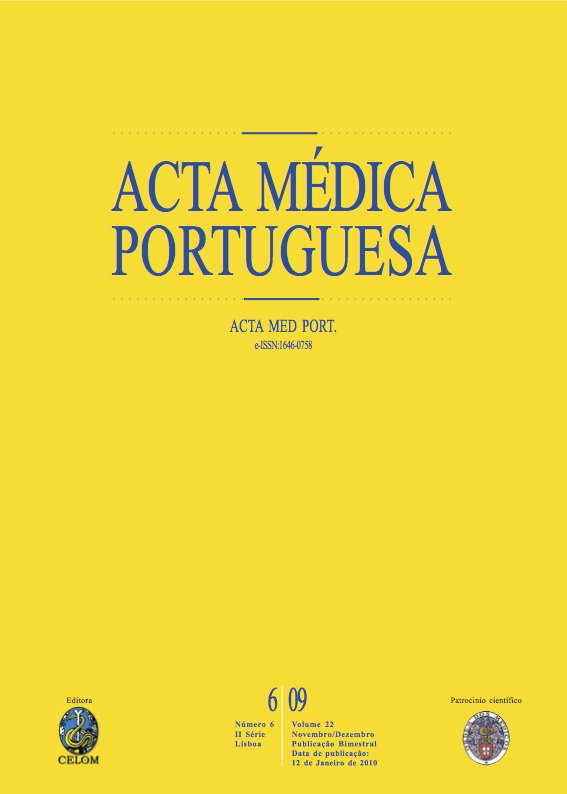Sclerosing mesenteritis.
DOI:
https://doi.org/10.20344/amp.1724Abstract
The Sclerosing Mesenteritis is a rare idiopathic disease. It represents the final stadium of progression of the chronic inflammatory illnesses of the intestinal mesentery, with predominance of fibrosis. The clinical manifestations are varied and unspecific. Diagnosis, that demands high degree of suspicion, can be presumed for imaging study, that discloses heterogeneous mass with tumor-like appearance, and confirmed on the basis of anatomo-pathological examination. The treatment is empirical and the prognostic is habitually favourable, over all in initial stadiums of the illness, being in a minority fatal. The authors describe the clinical case of a 50 years-old woman, admitted in the hospital for abdominal pain, ascitis and fever and that by radiological suspicion of peritoneal carcinomatosis and negative complementary study for primitive neoplasm, was submitted to an exploring laparotomy. Observed accented thickening of the mesentery that formed an extensive adherent conglomerate of bowel loops, whose biopsy had disclosed to be a sclerosing mesenteritis. Was verified an irrelevant answer to the treatment and an unfavourable, lethal, clinical course. The authors provide a literature review concerning the most relevant aspects of this disease.Downloads
Downloads
How to Cite
Issue
Section
License
All the articles published in the AMP are open access and comply with the requirements of funding agencies or academic institutions. The AMP is governed by the terms of the Creative Commons ‘Attribution – Non-Commercial Use - (CC-BY-NC)’ license, regarding the use by third parties.
It is the author’s responsibility to obtain approval for the reproduction of figures, tables, etc. from other publications.
Upon acceptance of an article for publication, the authors will be asked to complete the ICMJE “Copyright Liability and Copyright Sharing Statement “(http://www.actamedicaportuguesa.com/info/AMP-NormasPublicacao.pdf) and the “Declaration of Potential Conflicts of Interest” (http:// www.icmje.org/conflicts-of-interest). An e-mail will be sent to the corresponding author to acknowledge receipt of the manuscript.
After publication, the authors are authorised to make their articles available in repositories of their institutions of origin, as long as they always mention where they were published and according to the Creative Commons license.









